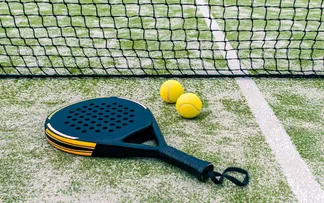

Building a DIY Padel Court A Guide to Creating Your Own Padel Oasis
Padel, the fast-growing racket sport that combines elements of tennis and squash, has continued to gain popularity across the globe. While many players enjoy competing in professional or public courts, the allure of creating your own bespoke environment is undeniable. A DIY padel court allows players to customize their playing experience while providing a versatile space for family and friends to enjoy. Here’s a comprehensive guide on how to build your own padel court from scratch.
Planning Your Court
Before breaking ground, careful planning is essential. The standard dimensions for a padel court are 20 meters long and 10 meters wide, with an overall height of 4 meters. That said, space constraints and local regulations might affect your project, so ensure you're familiar with the rules in your area.
Next, consider your new padel court's location. Ideally, locate it in an area that receives ample sunlight and remains relatively flat. Incorporating wind barriers, like trees or fencing, can also enhance playability and comfort.
Materials Needed
You'll need various materials to construct your court, including
1. Flooring Padel courts traditionally use artificial turf or a hard surface like concrete. Turf offers a softer playing experience and is easier on joints, while concrete can be more durable and low-maintenance.
2. Walls Padel courts typically have glass walls on the back and sides, which allow for the ball to bounce off them, adding to the game’s dynamics. You can use tempered glass for safety and durability, or consider concrete or fence panels if glass isn’t feasible.
3. Net The net segments the court into two equal halves and is a crucial component of any padel setup. Ensure you have a quality net and the required posts to hold it securely in place.

4. Lighting Enhanced visibility during evening play is essential. Install LED floodlights around the court for even and bright illumination.
5. Fencing To keep the ball within the court boundaries and ensure safety, a robust fencing system is necessary.
Construction Process
1. Set the Foundation Level the ground and pour concrete to create a solid base for your court. If using artificial turf, add a layer of gravel for drainage.
2. Install Walls and Fencing Begin erecting the walls, ensuring they are sturdy enough to withstand impact. Use fencing around the perimeter to secure the court.
3. Lay the Flooring If using artificial turf, install it following the manufacturer's guidelines. For concrete, ensure it’s smooth and properly cured.
4. Complete the Court Add the net and any remaining fixtures, such as lighting and signage.
Finishing Touches
Once construction is completed, the last step is to enhance your court's aesthetics and functionality. Add seating areas around the court, bushes or flowers for a touch of greenery, and perhaps a shaded section for relaxation between games.
In conclusion, building a DIY padel court is a rewarding project that not only enhances your property but also offers countless hours of fun and competition. With proper planning, quality materials, and some dedication, you can create a personal padel haven right in your backyard. Embrace the joy of Padel and enjoy playing in your very own custom court!
High-Performance Industrial Flooring Solutions China Paddle Tennis Court for Sale
High-Performance Industrial Flooring Solutions Durable & Cost-Effective
Homogeneous Transparent Floor – Durable & Stylish Rubber Floor Solutions
Premium Homogeneous Transparent Floor for Durable & Stylish Spaces Rubber Floor Solutions
Premium Sports Floor Solutions Durable PVC Sports Floor & Rubber Floor for Gyms
Durable Rubber Composite Floor Premium Rubber Floor & Mats Solutions